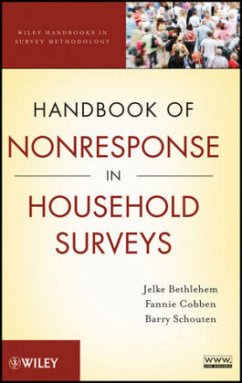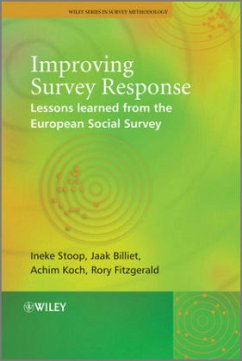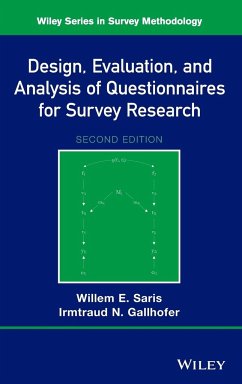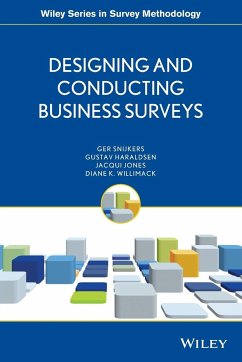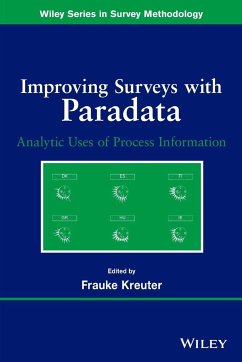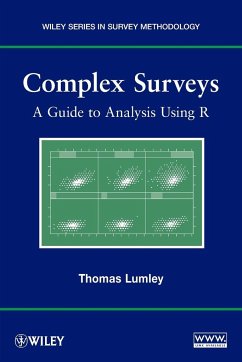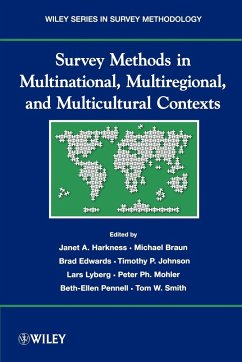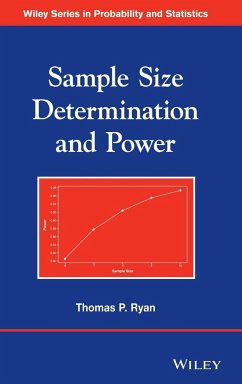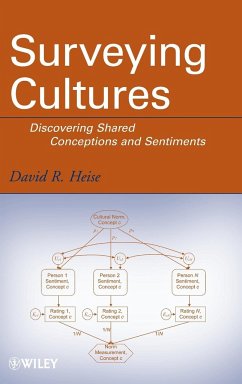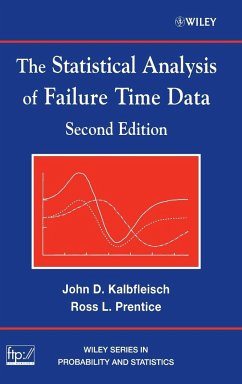Nicht lieferbar
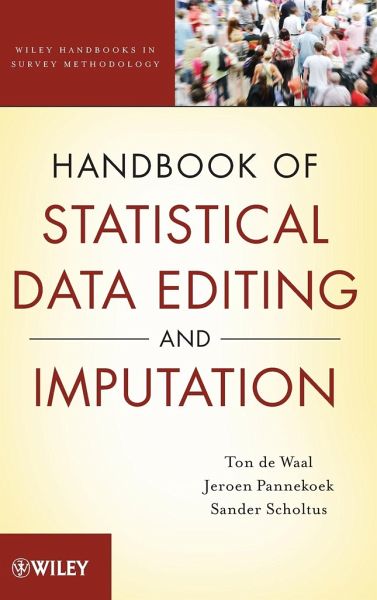
Handbook of Statistical Data Editing and Imputation
Versandkostenfrei!
Nicht lieferbar
This book provides a comprehensive overview of the entire edit and imputation process for detecting and correcting errors in survey research. Each chapter organizes the presented information in uniform components, with an introduction, outline of key theory and formulae, illustration of algorithms, a concise summary of key points, and a reference section listing additional resources on the topic. This presentation solidifies the book's goal of serving as a practical, one-stop reference on data editing and imputation.
A practical, one-stop reference on the theory and applications of statistical data editing and imputation techniques
Collected survey data are vulnerable to error. In particular, the data collection stage is a potential source of errors and missing values. As a result, the important role of statistical data editing, and the amount of resources involved, has motivated considerable research efforts to enhance the efficiency and effectiveness of this process. Handbook of Statistical Data Editing and Imputation equips readers with the essential statistical procedures for detecting and correcting inconsistencies and filling in missing values with estimates. The authors supply an easily accessible treatment of the existing methodology in this field, featuring an overview of common errors encountered in practice and techniques for resolving these issues.
The book begins with an overview of methods and strategies for statistical data editing and imputation. Subsequent chapters provide detailed treatment of the central theoretical methods and modern applications, with topics of coverage including:
Localization of errors in continuous data, with an outline of selective editing strategies, automatic editing for systematic and random errors, and other relevant state-of-the-art methods
Extensions of automatic editing to categorical data and integer data
The basic framework for imputation, with a breakdown of key methods and models and a comparison of imputation with the weighting approach to correct for missing values
More advanced imputation methods, including imputation under edit restraints
Throughout the book, the treatment of each topic is presented in a uniform fashion. Following an introduction, each chapter presents the key theories and formulas underlying the topic and then illustrates common applications. The discussion concludes with a summary of the main concepts and a real-world example that incorporates realistic data along with professional insight into common challenges and best practices.
Handbook of Statistical Data Editing and Imputation is an essential reference for survey researchers working in the fields of business, economics, government, and the social sciences who gather, analyze, and draw results from data. It is also a suitable supplement for courses on survey methods at the upper-undergraduate and graduate levels.
Collected survey data are vulnerable to error. In particular, the data collection stage is a potential source of errors and missing values. As a result, the important role of statistical data editing, and the amount of resources involved, has motivated considerable research efforts to enhance the efficiency and effectiveness of this process. Handbook of Statistical Data Editing and Imputation equips readers with the essential statistical procedures for detecting and correcting inconsistencies and filling in missing values with estimates. The authors supply an easily accessible treatment of the existing methodology in this field, featuring an overview of common errors encountered in practice and techniques for resolving these issues.
The book begins with an overview of methods and strategies for statistical data editing and imputation. Subsequent chapters provide detailed treatment of the central theoretical methods and modern applications, with topics of coverage including:
Localization of errors in continuous data, with an outline of selective editing strategies, automatic editing for systematic and random errors, and other relevant state-of-the-art methods
Extensions of automatic editing to categorical data and integer data
The basic framework for imputation, with a breakdown of key methods and models and a comparison of imputation with the weighting approach to correct for missing values
More advanced imputation methods, including imputation under edit restraints
Throughout the book, the treatment of each topic is presented in a uniform fashion. Following an introduction, each chapter presents the key theories and formulas underlying the topic and then illustrates common applications. The discussion concludes with a summary of the main concepts and a real-world example that incorporates realistic data along with professional insight into common challenges and best practices.
Handbook of Statistical Data Editing and Imputation is an essential reference for survey researchers working in the fields of business, economics, government, and the social sciences who gather, analyze, and draw results from data. It is also a suitable supplement for courses on survey methods at the upper-undergraduate and graduate levels.




